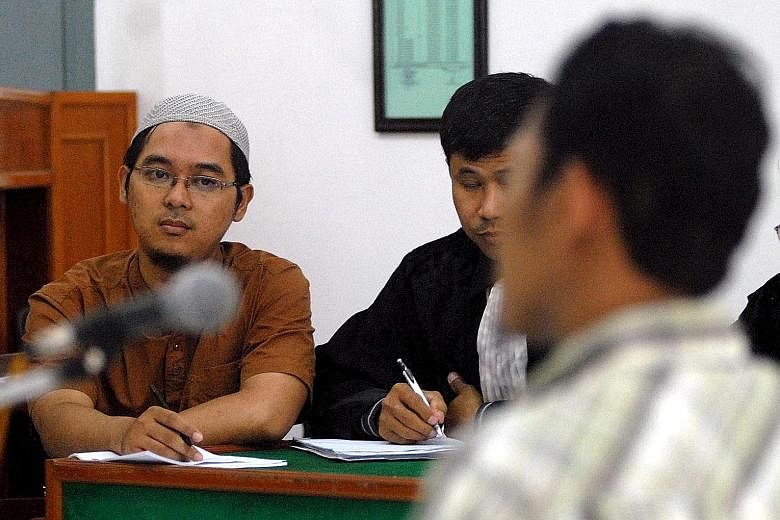An Indonesian militant fighting alongside the Islamic State in Iraq and Syria (ISIS) in the Middle East had used online payment services such as PayPal and bitcoin to transfer money to his comrades back home to fund terrorist activities.
The militant, Bahrun Naim, is believed to have directed the funds to domestic terror cells across Java Island, said Indonesia's anti-money- laundering agency PPATK.
Fraudulent transactions linked to terrorism detected by the agency more than doubled from 12 cases in 2015 to 25 cases last year, PPATK chairman Kiagus Ahmad Badaruddin told reporters yesterday, adding that this led the agency to tighten its scrutiny of financial transactions from overseas.
Mr Kiagus said : "Such fund transfers are more difficult to detect as they are not within the conventional banking system. We can detect them only when the end user finally encashes them through the banking system."
He declined to reveal the total funds transferred using such methods, but the PPATK said last year that overseas fund transfers into Indonesia in 2014 and 2015 - allegedly linked to terrorism - amounted to well over 10 billion rupiah (S$1 million). About 6 billion rupiah of that was said to have been transferred from Australia through terror supporters under the guise of charities.
These funds were used to help support the widows and families of slain terrorists, buy weapons from the southern Philippines, fund paramilitary training and promote violent ideologies by way of gatherings and discussions.
"Today, we are talking about PayPal, bitcoin. Two to three years from now, we may talk about other means, new ways," said Mr Ivan Yustiavandana, director for examination and research at PPATK. "The more sophisticated we are at getting them, the more they will try to look for new ways."
A spokesman from PayPal said in a statement that it is committed to combating terrorist financing and related financial crimes.
The spokesman added: "As part of these efforts, PayPal assists law enforcement in its work to identify and stop terror finance operations around the world. We take our commitment very seriously and devote significant resources globally to financial crime compliance. We are in contact with the relevant authorities to ensure that we are taking all appropriate actions."
The Java terror cells were busted late last year by Indonesia's counter-terrorism police unit, Detachment 88 (Densus 88). Most, if not all, of the cells had received money and learnt to make bombs and mount attacks from Indonesian ISIS fighters such as Bahrun in Syria, who sent instructions using the messaging app Telegram, said Indonesian police chief Tito Karnavian.
A PPATK official, who requested anonymity, noted that the use of PayPal and bitcoin by terrorists is a global trend. That is why the agency is working with Densus 88 to prevent militant cells from moving funds so freely to support attacks.
"We appreciate the work by Densus 88, and we have been successful because of its network, especially the ties with Interpol," he said.
The PPATK has set up a dedicated team that works with Densus 88 regularly, supplying the unit with financial data and analysis.
The official said the agency communicates regularly with its counterparts in more than 150 countries.
"Every time we find a suspicious transaction allegedly linked to terrorism, we immediately inform either the police or our counterparts overseas," he said.

